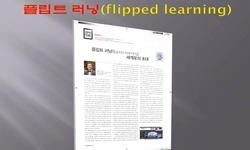The purpose of this study is to develop a case for flipped learning and implement it to real classroom based on the literature review and case studies. This study is also aimed to provide oversight and monitoring of an intervention study to ensure the...
http://chineseinput.net/에서 pinyin(병음)방식으로 중국어를 변환할 수 있습니다.
변환된 중국어를 복사하여 사용하시면 됩니다.
- 中文 을 입력하시려면 zhongwen을 입력하시고 space를누르시면됩니다.
- 北京 을 입력하시려면 beijing을 입력하시고 space를 누르시면 됩니다.

대학에서의 거꾸로 학습(Flipped learning) 사례 설계 및 효과성 연구: 학습동기와 자아효능감을 중심으로 = A case study of Flipped Learning at College: Focused on Effects of Motivation and Self-efficacy
한글로보기https://www.riss.kr/link?id=A101959571
- 저자
- 발행기관
- 학술지명
- 권호사항
-
발행연도
2014
-
작성언어
-
-
주제어
거꾸로 학습 ; 플립드 러닝 ; 체육교육 ; 학습동기 ; 자아효능감 ; flipped learning ; physical education ; motivation ; self-efficacy
-
KDC
300
-
등재정보
KCI등재
-
자료형태
학술저널
- 발행기관 URL
-
수록면
467-492(26쪽)
- 제공처
- 소장기관
-
0
상세조회 -
0
다운로드
부가정보
다국어 초록 (Multilingual Abstract)
The purpose of this study is to develop a case for flipped learning and implement it to real classroom based on the literature review and case studies. This study is also aimed to provide oversight and monitoring of an intervention study to ensure the effect of flipped learning on motivation and self-efficacy. Furthermore, qualitative data were also explored in order to have a better understanding of the actual teaching and learning circumstance and context. Participants who are involving in a series of flipped learning curriculum of “exercise physiology” for 4 weeks are 39 sophomore students (33 males, 6 females) of physical education at a University in Korea. First, students were asked to take a motivation test and a self-efficacy test prior to and after the experiment and the results were analyzed by the paired ttests. Secondly, qualitative data that were collected through the class observation, in-depth interviews, and semi-structured surveys were analyzed by the qualitative data analysis software package, ATLAS.ti., in order to reveal the groundedness from data and build the conceptual network between nodes. The results indicate that the flipped learning is associated with significant improvements in self-efficacy (p < .01), but not with motivation. Findings suggest that the intervention of flipped learning turned out to be effective to develop self-efficacy for learning. Four major themes emerged from the qualitative data analysis: finding problems of flipped learning; seeking and applying improvement methods; discovering positive effects of flipped learning; and adapting to flipped learning. Overall study participants were found to be influenced by positive effects of flipped learning such as ‘not feeling sleepy in the class (at least)’ and ‘active participation to class’ despite facing strong resistance from class, where initially skepticism appeared. Students managed to get used to the flipped learning by seeking improvement methods and applying meta-cognition in their learning process.
동일학술지(권/호) 다른 논문
-
참여적 실시간 이러닝 환경에서 학습자의 정서, 정서 조절전략이 학습참여 및 학습성취도에 미치는 영향: Facebook환경을 중심으로
- 한국교육공학회
- 이인숙 ( In Sook Lee )
- 2014
- KCI등재
-
온라인 토론학습에서 사회연결망분석 기반 피드백이 상호작용 및 성취도에 미치는 영향
- 한국교육공학회
- 임규연 ( Kyu Yon Lim )
- 2014
- KCI등재
-
대학생의 학습역량 및 경력개발을 위한 e-포트폴리오 시스템의 설계 및 개발
- 한국교육공학회
- 최은희 ( Eu Nhee Choi )
- 2014
- KCI등재
-
- 한국교육공학회
- 이동엽 ( Dong Yub Lee )
- 2014
- KCI등재




 KCI
KCI KISS
KISS







